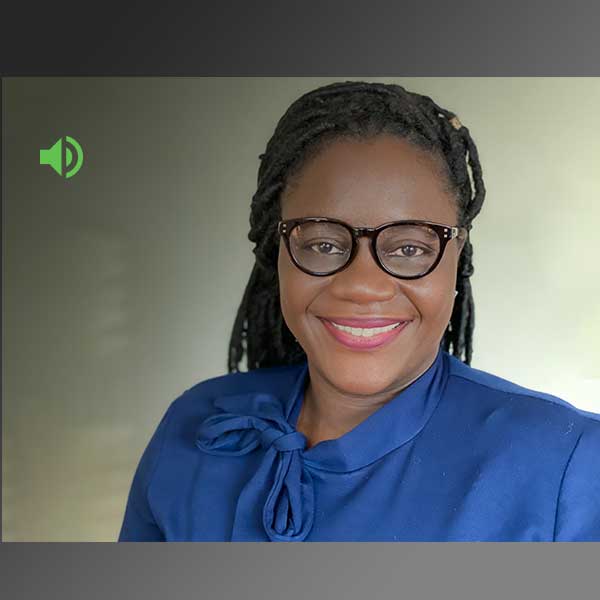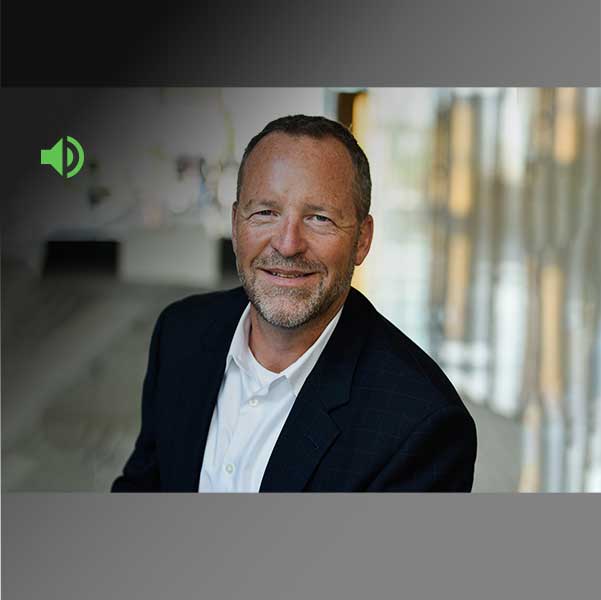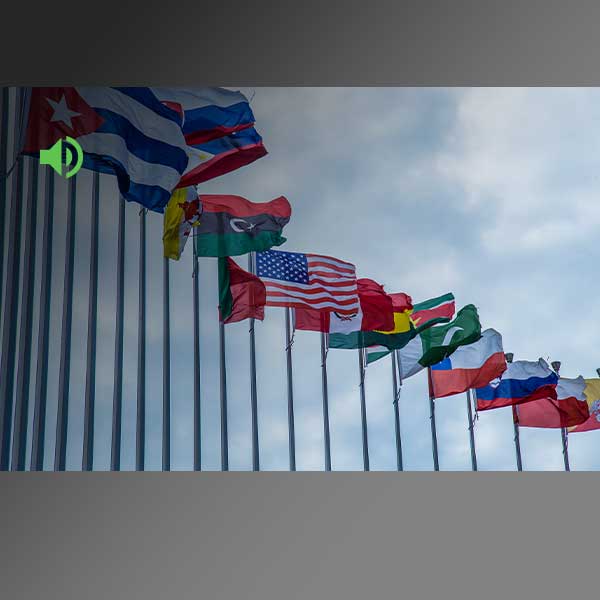Where do Americans stand on Gallup’s long-standing abortion measures one year after the U.S. Supreme Court’s decision in Dobbs v. Jackson Women’s Health Organization? Gallup’s Director of U.S. Social Research Lydia Saad joins the podcast to discuss the “new landscape on abortion” in the U.S.
To stay up to date with the latest Gallup News insights and updates, follow us on Twitter.
Below is a full transcript of the conversation, including time stamps. Full audio is posted above.
Mohamed Younis 00:11
For Gallup, I’m Mohamed Younis, and this is The Gallup Podcast. In this episode, we take a deep look into public sentiment on abortion. Where does the public stand on the many dimensions of the issue, and how much will it matter in the coming election? Lydia Saad is director of U.S. research at Gallup. Lydia, welcome back to the podcast, my friend.
Lydia Saad 00:32
Thanks so much!
Mohamed Younis 00:33
We just updated our latest on abortion. Lydia, this is a subject we’ve been tracking for generations, with you at the helm here, with an array of nuanced questions to get at this very complex, sort of really multi-issue topic. But let’s start with the big picture. What were the main learnings for us from this latest wave of polling?
Lydia Saad 00:52
So our latest wave was conducted in May 2023, which is about 11 months after Dobbs passed in 2022. And what the big picture of that is, is that we largely maintained changes we saw last year. So the really interesting thing is, what did we see last year? And last year was about a month before the Supreme Court handed down its decision in Dobbs, but right after -- we went into the field right after there was this leak of the Dobbs decision that indicated the court was about to overturn Roe v. Wade. And that poll picked up a very notable shift in public attitudes on abortion. On abortion, it's not like some issues, where, you wouldn't look at our trends, and go, Holy moly! Look at that change! Like this, this line, this line just spiked in a whole new direction! That didn't happen last year. But in the context of public attitudes on abortion, which have been very stable -- that's the been the unique feature of abortion trends for the last quarter-century is stability -- we suddenly saw movement all in one direction. And that direction was more support for abortion rights.
Lydia Saad 01:57
And that occurred as kind of a defensive posture of people who fundamentally think abortion should be legal. As you say, our measures on abortion are very, pick up a lot of nuance. But this core group of people who think abortion should be fundamentally legal, with restrictions, and once Dobbs passed, they kind of doubled down in some areas. And so we saw just basically a continuation of that this year. So it wasn't just like a one off -- oh, in the, in the, in the, immediate aftermath of Dobbs, there was this reaction, and people “settled down.” No, those attitudes are continuing. So we kind of have a new landscape on abortion.
Mohamed Younis 02:30
You mentioned the Dobbs decision several times. Of course, our listeners, we’re all familiar with it. It was the decision that really overturned a very big case in abortion law here in the United States. Roe v. Wade was the law of the land on abortion for many decades. Dobbs overturned that. We asked the public about their view on that decision. In terms of public sentiment, how unpopular was the Dobbs decision?
Lydia Saad 02:55
So about six in 10 Americans, a little over six in 10 Americans, told us last year just ahead of Dobbs, they thought that that would be a bad thing if Roe v. Wade was overturned. And we can continue to see that today, when we say, “How do you feel about it being overturned?” Sixty-three percent say it was a bad thing; just 35% say it's a good thing. And that really extends decades of polling. You know, we hit, Roe v. Wade would have hit its 50th anniversary this year. So five decades of polling showing the majority of Americans did not want Roe v. Wade overturned.
Mohamed Younis 03:25
What about people identifying as pro-choice and pro-life? Of course, these labels take on a life of their own in election cycles. But we've also been tracking whether or not people identify as pro-choice or pro-life for a long time now. Where is the swing lately? Is it more in the pro-life or pro-choice direction?
Lydia Saad 03:42
So that was one of those multiple indicators that moved post- the Dobbs leak. And just as people became a bit more likely to say they think abortion should be legal under any circumstances -- that was one of the trends we saw last year in, in post-Dobbs leak, we saw an increase in the percentage identifying as pro-choice on the issue. So for almost 25 years, between 1997 and 2021, the percentage identifying as pro-choice or pro-life was about evenly matched, averaging 46% for pro-life, 47% for pro-choice. And then last year, the percent identifying as pro-choice jumped six points to 55%. So again, in the context of abortion trends, that was a notable shift. This year, that eased a little bit; it's back down to 52%. But it's still a majority, which we hadn't seen since 1996.
Mohamed Younis 04:37
How does this impact the vote? Does this change the landscape for voters? Is this a huge advantage for the Democrats? So many questions that are really about the conjecture around what this could mean for future election cycles. We've tried to wrap our minds around that potential impact in a way that can be compared to the past. How have we done that? And what did we find?
Lydia Saad 04:59
So we ask a question -- we ask this about a number of issues in election-year context. We say, “Thinking about how the abortion issue might affect your vote for major offices, would you only vote for a candidate who shares your views on abortion, or would you consider a candidate's position on abortion as just one of many factors, or do you not see abortion as a major issue? Historically, like from 1992 through the early 2000s, we had less than 20% of Americans ever saying abortion was a litmus-test issue to them -- candidates’ views had to match theirs. That was, you know, as low as 13% to as high as 17%. That started creeping up in the 2010s. It hit 24%-25% in 2019, but it moved up further to 28% this year, 27% last year. That's a notable change. So more people now saying abortion is a, a litmus-test issue for them. And then on the side we've already talked about, more people identifying as pro-choice. More people saying abortion should be broadly legal.
Lydia Saad 05:58
And then you put those two things together, and it turns out the folks saying that abortion really matters to them in their vote are more the pro-choice people. So you look at this trend, you look at putting it all together, the percentage of Americans who are pro-choice and say they'll only vote for a candidate who shares their views on this issue jumped to 17% both this year and last year from 10% in 2020 and from as low as 5% in 2004. So you had relatively few, we wouldn't call them single-issue, but litmus-test abortion voters, pro-choice voters prior to Dobbs. And now that's up to 17%. Meanwhile, the percentage of pro-life Americans -- self-identified pro-life Americans who say they’d only vote for a candidate who shares their views is still kind of languishing down at 10%, kind of where it's been for the prior decade. So that's telling us that the pro-life side now is a bit more complacent on the issue. The law is on their side. And so whenever the status quo is in your favor, you're less energized to get out and vote to defend something than someone might be to get out and change something. So again, after two decades, when pro-lifers tended to outnumber pro-choicers being abortion-focused voters, that's now flipped in a big way. And this is a trend, you look at it and you go, Wow! That real, this really hits you over the head, where this is a big change. And I think we saw that in the last election with turnout. And this is here to stay, because this is a trend that didn't wane over the past year. Pro-choicers are just as energized on this issue this year as they were a year ago.
Mohamed Younis 07:31
And with more reason to be energized. I mean, as everything you just broke down is occurring, we're seeing more and more state legislatures taking steps to curtail access to abortion in various ways, whether it's through the mifepristone issue or, and related drugs, or whether it's through the procedures themselves. Is it likely to kind of bring this issue even more to the forefront of the minds of people who are concerned about it from a rights perspective, the pro-, pro-choicers?
Lydia Saad 07:59
Certainly, I think that's a reasonable hypothesis. You know, it's, it's gone now from an abstract issue to a very concrete issue. And as you say, as states continue to pass laws restricting abortion, basically in the first trimester. That is, that's the trip wire in all of this. As long as Roe v. Wade was the law of the land, it allowed states to limit abortion in the second and third trimester. And that was very much in line with the broad strokes of public opinion. Now, some of these states, you know, started getting more aggressive in the kinds of laws they were passing, and the pro-choice groups were getting more and more concerned about that. But it was hard to rile the public up on that because, broadly, Americans don't think abortion should be legal in the second and third trimesters. They favor parental notification; they favor informed consent, all these sorts of things. So those sorts of restrictions or, or regulations were well tolerated by the public. What Dobbs did was now strip first-trimester protection, saying that's no longer protected by the Constitution; it's up to the states. And so now you have states putting on these fetal heartbeat bills that previously had been struck down by the Supreme Court; now they're not. And that's just a bridge too far for not just the visible pro-choice advocacy groups that are in the political space but the average pro-choice American.
Mohamed Younis 09:21
It’s so interesting to track this public sentiment of the Dobbs decision. I mean, ultimately, the court is making a decision based on the law and not public opinion, of course. But Lydia, in addition to just polling and, and looking at the numbers, you've also been a part of a lot of really senior think groups around how to measure abortion, public views on the issue, how they've changed. If you were to kind of leave our listeners with the most important thing our listeners should take away from these and other data on where the country really is on abortion right now?
Lydia Saad 09:53
It's not like other issues, where we've seen a gradual move toward one side of an issue, whether it's support for things like interracial marriage or legalization of marijuana or support for LGBT rights. Those things have been generational changes in one direction where, you know, civil rights movement, where one group is trying to gain recognition, equal status in society, and it's sort of inevitable public opinion is going to move in that direction. Historically, abortion has been very different, because there's a group of people say this is, this is a movement about women's rights. And another group say this is a, a movement about the rights of the unborn. And they're both talking about civil rights, but different people's civil rights. And so there's been an impasse.
Lydia Saad 10:41
But I think the thing to watch is whether things kind of shake out where they are, and now we end up with a situation where you have sort of a slight majority of Americans being pro-choice and advocating for abortion rights, but you still have a significant minority that just persists over time, that is still making the pro-life case. Or that this decision has so fundamentally changed things that the balance has tipped toward focus on the women's rights, and that that is just gonna kind of now increase continuously to be sort of like supermajority level, and we'll kind of never look back. Like it will be long past the point when this was a significant debate. I'm not really sure which way that's going to go. Like, generationally, since young people are more pro-choice, it sort of looks, maybe it's inevitable that this, that's the way things are going to go, but time will tell.
Mohamed Younis 11:36
Yeah, time will tell, and there couldn't be a better person to break this all down for us. Lydia Saad, she is Gallup’s director of U.S. research. Lydia, thank you for joining us.
Lydia Saad 11:45
Thank you.
Mohamed Younis 11:49
That's our show. Thanks for tuning in. For more from Gallup, go to news.gallup.com, and sign up for our newsletter, Front Page, where we break down all that Gallup is learning across the globe in one weekly email. The Gallup Podcast is directed by Curtis Grubb and produced by Justin McCarthy. I'm Mohamed Younis, and this is Gallup: reporting on the will of the people since the 1930s.



